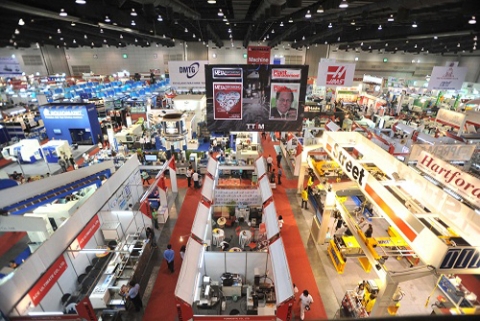Thailand Convention & Visitors Bureau Unveils 2014 MICE Strategic Plan

This year was a very good one for the Thailand Convention & Visitors Bureau, which recently announced the performance of Thailand’s MICE Industry for the fiscal year 2013, revealing that the sector had exceeded its targets both in terms of visitor numbers and industry earnings.
TCEB also unveiled its 2014 Strategic Plan that targets key high-quality markets and aims to boost the ‘Thailand Brand’ as Asia’s premiere MICE destination, according to CVB officials.
The plan highlights three main pillars of Thailand’s MICE industry consisting of Destination; Business; and People. Together with TCEB’s unique ‘3C’s’ approach - Co-creation, Customisation and Creativity - the bureau aims to boost 2014 revenues by 10 percent to 96.9 billion baht.
"Our efforts to drive the MICE sector in collaboration with all other stakeholders from both the public and private sectors have borne fruit,” said Nopparat Maythaveekulchai, TCEB’s president.
He added, “In all, this year, we have welcomed a total of 1,013,502 overseas MICE visitors, up 13.21 percent, compared with 2012. In revenue terms, earnings were also up by 10.93 percent to 88.485 billion baht, surpassing our annual targets for both numbers and industry earnings. Asia was our largest source of MICE visitors, representing 75.25 percent of all MICE visitors, followed by Europe, with 10.06 percent, and USA, with 4.72 percent The top five countries were China, India, Malaysia, Japan and Singapore.”
For the 2014 fiscal year, TCEB has been allocated a budget of 880 million Baht to drive the country’s MICE sector under the 2012-2016 MICE Industry Master Plan. The following are TCEB’s key strategic goals:
- Maintain existing markets, and open up new markets
- Promote Thai MICE as ‘Top of Mind’ in Asia
- Differentiate and add value through the Creative Economy approach
- Build strong networks and alliances both domestically and internationally
- Enhance TCEB’s organizational role and capacity
The plan identifies three main groups of destination markets, categorised by Thailand’s competitive strengths:
1. For the 50 percent share represented by primary markets, TCEB aims to win more bids for Thailand, and attract more MICE events under its ‘WIN’ strategy, especially from the ASEAN+6 and Oceania markets (Cambodia, Hong Kong, Lao PDR, Myanmar, Taiwan and Vietnam);
2. For the 30 percent of Thailand’s MICE market represented by existing markets, TCEB will focus on maintaining and developing these markets in Europe, North America and the Middle East. Key countries are the United Kingdom, Germany, France, Netherlands, Spain, USA and the United Arab Emirates.
3. For emerging markets with rapid market growth of 20 percent or more, TCEB aims to enter these new markets and build Thailand’s market share. Key markets include Africa, Eastern Europe and the BRIC countries (Brazil, Russia, India and China).
In terms of the business sector, the MICE industry comprises three broad categories:
1. Industries promoted by the Board of Investment (BOI) and key export industries (food and agriculture, gems and jewelry, tourism, medical and pharmaceutical industries, and electronic equipment)
2. Industry sectors attracting large numbers of MICE visitors (automotive, transportation, communications, finance, banking, insurance, and the environment)
3. Emerging industries and those receiving government support, such as arts and culture, clean energy, health, creative industries and aerospace.
The last group is further subdivided by profession, as follows:
1. Decision makers from associations, companies and government;
2. Influencers such as agents, organizers, trade associations, chambers of commerce;
3. Related businesses such as airlines, hotels, conference centres etc.
"I am confident that by implementing this plan, TCEB can contribute to boosting the number of MICE travellers by 5 percet, compared with last year, to a total of 987,000 visitors in 2014, whilst MICE industry earnings will grow by 10 percent to 96.9 billion Baht,” Nopparat said.
Some key events in the 2014 MICE calendar include incentive travel events such as the Unicity Global Convention (20,000 delegates); HerbalLife Asia Pacific World Team University 2013 (12,000 delegates; Jeunesse Expo Annual World Conference 2013 (5,000 delegates); international conferences such as the World Marketing Forum 2014 (4,000 delegates); the International Congress of Pharmaceutical Sciences - FIP 2014 (2,500 delegates); and the 3rd Global Congress for Consensus (2,000 delegates).
In terms of international exhibitions and trade fairs, in 2014 Thailand will host events such as Metalex 2014 (50,000 visitors); Intermach 2014 (40,000 visitors); Propak 2014 (30,000 visitors); and TFBO&TRAFS 2014 (25,000 visitors).


Add new comment